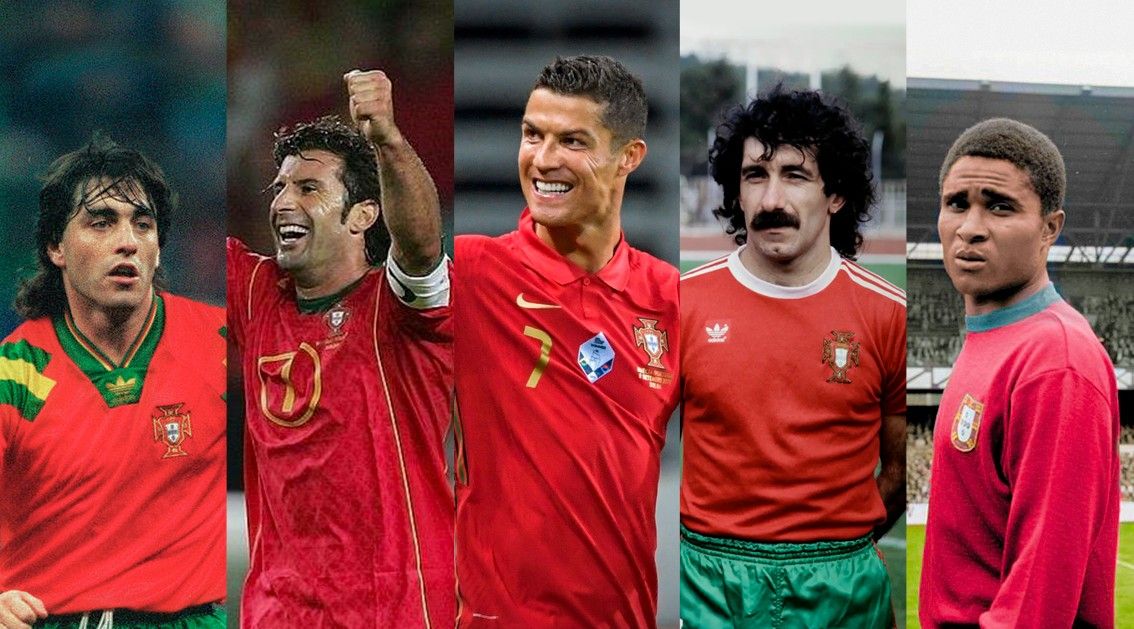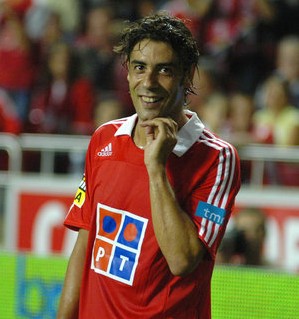“Football Legends from Portugal: A Legacy of Skill, Passion, and Triumph
Related Articles Football Legends from Portugal: A Legacy of Skill, Passion, and Triumph
Football Legends from Portugal: A Legacy of Skill, Passion, and Triumph

Portugal, a nation steeped in history and culture, has long been a breeding ground for exceptional footballing talent. From mesmerizing dribblers to commanding defenders, Portuguese footballers have graced the world’s biggest stages, leaving an indelible mark on the beautiful game. This article delves into the careers and achievements of some of the most iconic football legends from Portugal, celebrating their contributions to the sport and their enduring legacy.
Eusébio: The Black Panther
Eusébio da Silva Ferreira, affectionately known as Eusébio, is widely regarded as one of the greatest footballers of all time. Born in Mozambique, then a Portuguese colony, Eusébio rose to prominence with Benfica in the 1960s, leading the club to unprecedented success.
Eusébio’s blistering pace, incredible dribbling skills, and lethal finishing made him a nightmare for defenders. He possessed a powerful shot and an uncanny ability to find the back of the net, earning him the nickname "The Black Panther."
Eusébio’s crowning achievement came in 1966 when he led Portugal to a third-place finish at the FIFA World Cup. He was the tournament’s top scorer with nine goals, including four in a memorable quarterfinal against North Korea.
Throughout his career, Eusébio won numerous accolades, including the Ballon d’Or in 1965. He was a prolific goalscorer for Benfica, netting over 300 goals in all competitions. Eusébio’s impact on Portuguese football is immeasurable, and he remains an icon to this day.
Luís Figo: The Elegant Winger
Luís Figo was a winger of exceptional talent and grace. Known for his mesmerizing dribbling, pinpoint passing, and ability to unlock defenses, Figo was a key player for both club and country.
Figo began his career at Sporting CP before moving to Barcelona in 1995. He quickly established himself as a fan favorite at the Camp Nou, winning two La Liga titles and a UEFA Cup Winners’ Cup.
In 2000, Figo made a controversial move to Real Madrid, becoming the first "Galáctico" signing of Florentino Pérez’s presidency. Despite the initial backlash from Barcelona fans, Figo proved to be a valuable asset for Real Madrid, helping them win two La Liga titles and a Champions League crown.
Figo was also a mainstay of the Portuguese national team, earning over 120 caps. He led Portugal to the final of Euro 2004, where they suffered a heartbreaking defeat to Greece. Figo was awarded the Ballon d’Or in 2000, recognizing his outstanding performances for club and country.
Cristiano Ronaldo: The Goal Machine
Cristiano Ronaldo dos Santos Aveiro is undoubtedly one of the greatest footballers of all time. A prolific goalscorer, Ronaldo possesses exceptional athleticism, technical ability, and an insatiable desire to win.
Ronaldo began his career at Sporting CP before joining Manchester United in 2003. Under the tutelage of Sir Alex Ferguson, Ronaldo developed into a world-class player, winning three Premier League titles, an FA Cup, and a Champions League crown.
In 2009, Ronaldo moved to Real Madrid for a then-world-record fee. At the Santiago Bernabéu, Ronaldo reached new heights, becoming the club’s all-time leading goalscorer. He won four Champions League titles, two La Liga titles, and numerous individual awards, including five Ballon d’Ors.

Ronaldo has also enjoyed tremendous success with the Portuguese national team. He is the all-time leading scorer for Portugal and has led his country to victory in Euro 2016 and the UEFA Nations League in 2019. Ronaldo’s relentless pursuit of excellence and his unwavering determination have made him an inspiration to millions around the world.
Other Notable Portuguese Football Legends
While Eusébio, Figo, and Ronaldo are arguably the most iconic Portuguese footballers, there have been many other exceptional players who have contributed to the country’s rich footballing heritage.
- José Torres: A powerful striker who played alongside Eusébio at Benfica, Torres was known for his aerial ability and clinical finishing.
- Mário Coluna: A commanding midfielder who captained Benfica to European glory in the 1960s, Coluna was a master of the long pass and a tenacious tackler.
- Rui Costa: An elegant playmaker with exceptional vision and passing range, Rui Costa was a key player for Benfica, Fiorentina, and AC Milan.
- Fernando Chalana: A gifted winger with incredible dribbling skills, Chalana was considered one of the most promising young players in the world in the early 1980s.
- Paulo Futre: A dynamic winger with blistering pace and a penchant for scoring spectacular goals, Futre was a star for Porto, Atlético Madrid, and Benfica.
- Ricardo Carvalho: A commanding center-back with excellent positioning and tackling skills, Carvalho was a key player for Porto, Chelsea, and Real Madrid.
- Deco: A creative midfielder with exceptional vision and passing range, Deco was a key player for Porto, Barcelona, and Chelsea.
The Enduring Legacy
The football legends of Portugal have left an indelible mark on the sport. Their skill, passion, and dedication have inspired generations of players and fans alike. From Eusébio’s electrifying performances in the 1960s to Ronaldo’s record-breaking feats in the 21st century, Portuguese footballers have consistently showcased their talent on the world’s biggest stages.
Their legacy extends beyond individual achievements. They have helped to elevate Portuguese football to new heights, inspiring a nation and fostering a deep sense of pride. The success of Portuguese clubs in European competitions, such as Benfica’s European Cup triumphs in the 1960s and Porto’s Champions League victory in 2004, is a testament to the country’s rich footballing heritage.
Moreover, the influence of Portuguese coaches has also been significant. José Mourinho, one of the most successful managers in the history of the game, has led Porto, Chelsea, Inter Milan, Real Madrid, and Manchester United to numerous titles. His tactical acumen and motivational skills have made him a highly sought-after coach.
In conclusion, the football legends of Portugal represent a legacy of skill, passion, and triumph. Their contributions to the sport have been immense, and their influence will continue to be felt for generations to come. They are a source of inspiration for aspiring footballers in Portugal and around the world, and their names will forever be etched in the annals of football history.

